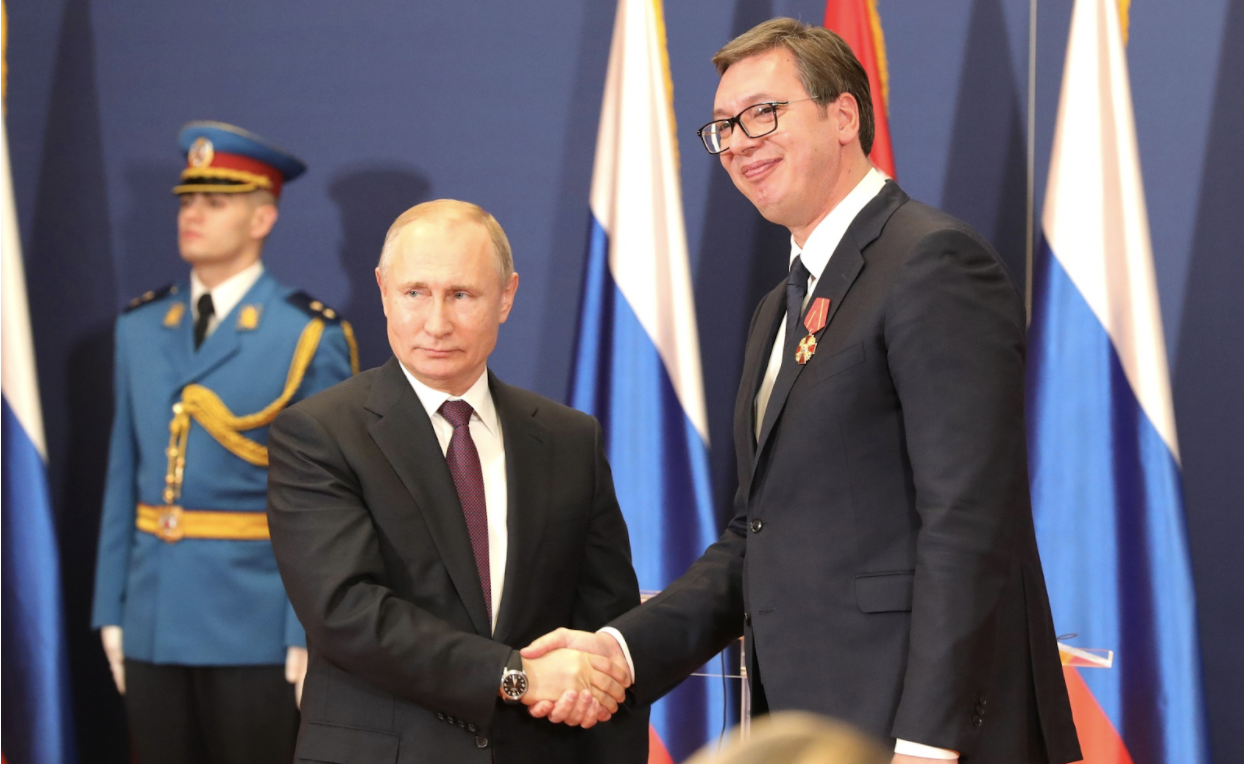Serbia Refuses to Comply with EU Restrictions and Sanctions
Serbian President, Aleksandr Vucic, pictured with Russian President Vladimir Putin. (Wikimedia Commons)
In response to the war in Ukraine, many European nations have chosen to impose sanctions and restrictions on Russia. One country that has refused to comply with these standards is Serbia. On Tuesday, March 16, Serbian leaders reiterated that they will not impose sanctions on Moscow.
Ivica Dacic, speaker of Serbia’s parliament, stated, “Serbia will be guided by its national interests, and they imply that Serbia will not impose sanctions on Russia. Serbia is committed to respecting international law and will always be committed to peace.”
Serbia is the only European nation, with the exception of Belarus, that refuses to impose sanctions on Russia. They have, however, aligned themselves with one particular set of EU sanctions—Serbia agreed to restrictive measures against former Ukrainian president Victor Yanukovych, who is believed to be a current Russian citizen. This marks the first and only time that Serbia has aligned with EU sanctions over Ukraine.
Serbia is an EU candidate, not a member, and thus is not formally required to comply with EU measures. However, the EU has stated that there will be a “price” for Serbia to pay if they continue to refuse. The European Parliament has already stated that “Serbia’s non-alignment with EU sanctions…damages its EU accession process.”
“We are making it clear to Serbia what the price will be if the country is on the wrong side of the conflict,” said Michael Siebert, the director general of the European External Action Service.
Despite refusing sanctions, Serbia is prepared to accept refugees from Ukraine as well as to provide humanitarian and medical aid. The president of Serbia, Aleksandar Vucic, announced that Serbia will offer its support to the territorial sovereignty of Ukraine, yet they must do “what was best for Serbia.” According to the European Council on Foreign Relations, these words seem to be empty promises, as Serbia refuses to aid economically.




